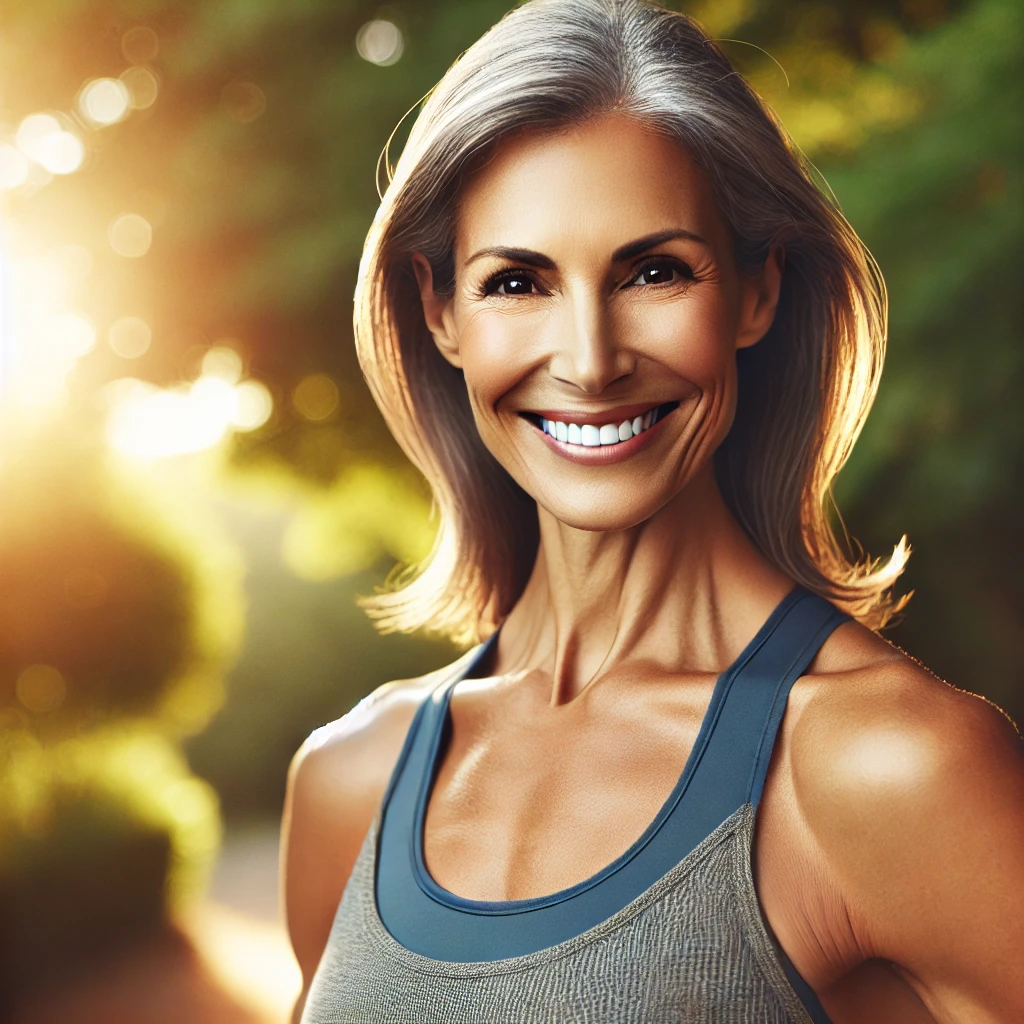
Aging is a natural part of life—but for women, it often feels like it shows up faster, hits harder, and sticks around longer. From shifting hormones to changing skin, bones, and mood, women experience aging differently than men. The good news? You’re not powerless. By understanding how your body changes and using proven strategies, you can take control and age on your own terms.
This article breaks down exactly why women age differently, what happens inside your body, and what you can do—starting now—to stay strong, sharp, and confident.
Why Women Age Differently Than Men
A woman’s body is wired with hormonal rhythms that shift drastically with age. Estrogen, the hormone that helps regulate everything from mood to metabolism, drops significantly during menopause. This decline has a ripple effect across the body:
- Fat distribution changes—you may notice more belly fat
- Muscle mass drops, slowing metabolism
- Skin loses elasticity faster
- Bone density declines, increasing osteoporosis risk
Men age too, of course, but their hormonal changes are more gradual. For women, it’s like flipping a switch around midlife—and your body feels it.
According to the NIH, women lose up to 20% of bone density in the five to seven years after menopause.
The Biological Changes Women Face with Age
1. Skin
Collagen production declines, causing thinner skin, fine lines, and dryness. Estrogen loss also leads to less skin hydration and slower wound healing.
2. Bones
Estrogen protects bones. Once it drops, bones become more porous and fragile. Women are at higher risk for fractures, especially post-menopause.
3. Muscles & Metabolism
After 40, women lose up to 1% of muscle mass per year. Less muscle means a slower metabolism, making it easier to gain weight.
4. Reproductive System
Menopause brings hot flashes, night sweats, vaginal dryness, and irregular periods. Hormonal imbalance can also affect libido and sleep.
5. Brain & Mood
Many women report “brain fog,” memory lapses, or mood swings. There’s also a higher risk of anxiety or depression during and after menopause.
The Emotional Impact of Aging on Women
Beyond the physical, aging hits emotionally too. Our culture glorifies youth—especially for women—so the visible signs of aging can feel like a loss of identity or value. Common experiences include:
- Lower self-esteem
- Feeling invisible or overlooked
- Increased anxiety around appearance or health
But aging isn’t a decline—it’s a shift. With the right mindset and support, it can also be a time of renewed strength and clarity.
How to Fight Back: Science-Backed Anti-Aging Strategies
There’s no magic cure, but there are proven ways to slow the aging process and protect your body.
a. Nutrition
- Eat whole, nutrient-dense foods: leafy greens, berries, fish
- Focus on anti-inflammatory options: turmeric, olive oil, fatty fish
- Boost bone health with calcium and vitamin D
- Add foods rich in phytoestrogens: flaxseeds, soy, legumes
b. Fitness
- Strength training 2–3x per week to maintain muscle
- Cardio (walking, cycling, swimming) for heart and brain
- Stretching or yoga for flexibility and stress relief
c. Skincare & Hormonal Support
- Use retinoids, SPF, and products that boost collagen
- Consider HRT (Hormone Replacement Therapy)—talk to your doctor about risks and benefits
- Stay hydrated and avoid smoking or excessive alcohol
d. Sleep, Stress & Mental Health
- Aim for 7–9 hours of quality sleep
- Manage stress with breathing exercises, journaling, or therapy
- Try natural support: magnesium, adaptogens, melatonin
What to Start Doing Now—No Matter Your Age
Here’s a quick checklist to take charge of aging today:
- Book a bone density test if you’re over 50
- Add resistance workouts to your weekly routine
- Review your diet and add more whole, anti-aging foods
- Talk to your doctor about hormone levels
- Improve your skincare with evidence-backed ingredients
- Create a wind-down routine for better sleep
- Prioritize mental health and community support
When to See a Doctor About Aging Concerns
If you notice rapid changes in your body or mood, don’t dismiss them as “just getting older.” Signs to watch:
- Sudden weight gain or fatigue
- Memory loss beyond occasional forgetfulness
- Persistent low mood, irritability, or sleep problems
- Painful joints or fractures
Your doctor may recommend blood tests, HRT, physical therapy, or lifestyle changes based on your specific needs.
Final Thoughts: Aging with Strength and Intention
Aging isn’t about losing something—it’s about adapting. Understanding how your body changes gives you power. By taking proactive steps—physically, emotionally, and mentally—you can age with strength, confidence, and vitality.
Don’t wait for the signs to show. Start today, and give your future self the gift of health and resilience.



